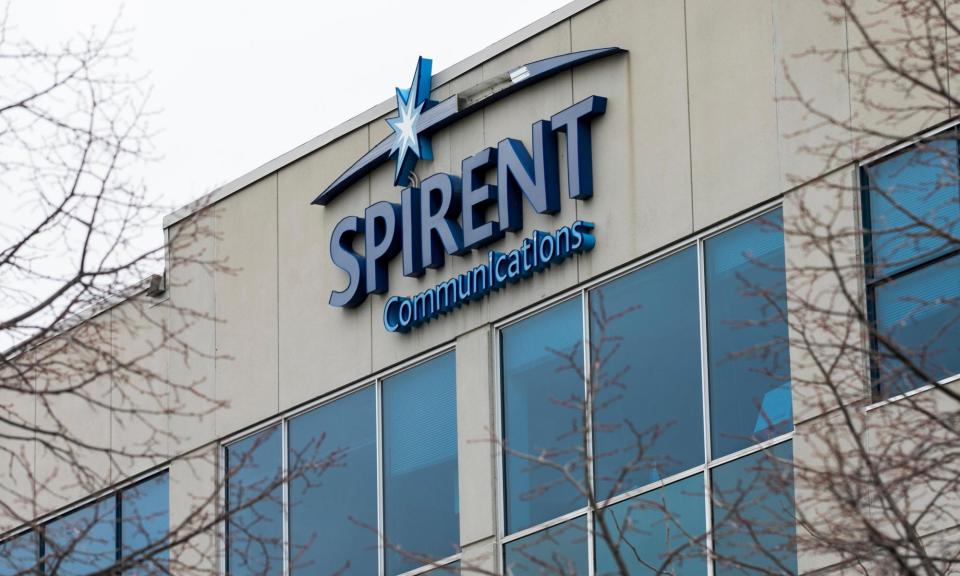Spirent shares jump 60% as it accepts £1bn bid from US rival Viavi

Shares in the UK telecoms firm Spirent Communications jumped 60% after it accepted a £1bn offer from a US rival in the latest takeover of a British company by a foreign firm.
The Arizona-based Viavi Solutions, which manufactures, tests and monitors equipment for networks, will pay 172.5p in cash and a special dividend of 2.5p, in lieu of a final dividend, for each Spirent share.
Spirent shares rose as high as 174.90p, up 60%, making it the top riser on the FTSE 250.
There has been a flurry of takeover offers for UK companies from foreign suitors looking to take advantage of low valuations. UK assets are considered to be cheap, weighed down by a weaker pound, the struggling UK economy and the lingering impact of Brexit. Last week, bosses at the haulage company Wincanton threw their support behind a £762m takeover offer from the US logistics business GXO and dropped their backing for a rival bid from France’s CEVA. CEVA said on Tuesday that it would not raise its offer.
The insurer Direct Line rejected a £3.1bn offer from its Belgian rival Ageas that it described as “highly opportunistic”. The electrical goods chain Currys rejected an improved takeover offer worth £742m from the US investment group Elliott Advisors.
Figures from the Office for National Statistics on Tuesday showed the value of deals where a foreign company bought a UK company rose to £8.6bn in the fourth quarter, from £5.3bn in the previous quarter.
News of the Spirent takeover came as the Crawley-headquartered company, which employs 1,500 people, reported an 80% plunge in 2023 pre-tax profits to $22.9m (£18.1m). Revenues fell 22% to $474m.
The Spirent chief executive, Eric Updike, said high interest rates and inflationary pressures affected customers in the telecommunications sector, which cut costs and cut back on capital spending.
The deal is expected to drive the combined group’s product development in artificial intelligence and machine learning, security, cloud-native architecture and automation.
As part of the deal, the private equity group Silver Lake will invest $400m in Viavi.
The Nasdaq-listed Viavi has a market value of $2.2bn and employs 3,600 people, including 400 in the UK. Its customers include Cisco Systems, Nokia, British Telecom Openreach, Deutsche Telekom and Verizon Communications.
Richard Hunter, the head of markets at the trading platform interactive investor, said Spirent was “a further example of UK companies as bid targets given the currently undemanding level of valuations, which has led to a number of acquisition approaches over recent weeks”.
“Another tech firm bites the dust,” said Neil Wilson, the chief markets analyst at Final Financial Services.
“The move just adds to the sense that the shallow waters of the London market are not enough for tech firms to thrive. There is a lot for the chancellor to consider ahead of tomorrow’s budget if he is serious about support for the London market and the City in general. Scrapping the 0.5% stamp duty reserve tax would be a start; but a pro-growth, pro-investment regime change is really what’s required.”

 Yahoo Finance
Yahoo Finance 